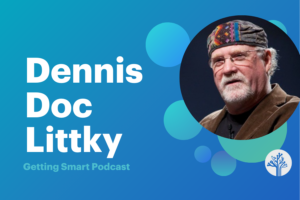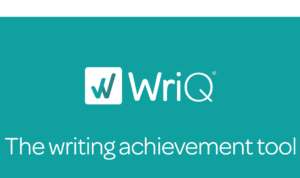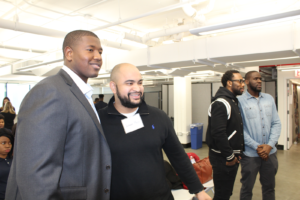How Writing Teachers Can Help Revolutionize Higher Education

By Denise Wydra
Writing teachers, and the discipline of composition, can be a valuable resource in the quest to transform higher education. Here’s why.
Many reformers have been pushing for more student-centered pedagogy in higher education, moving away from lectures that emphasize subject matter knowledge and toward active learning that emphasizes critical thinking. Nobel Prize-winning physicist Carl Wieman proposes such changes, for example, in his new book Improving How Universities Teach Science. Under his guidance, faculty at the University of Colorado and now Stanford University are successfully incorporating more active learning strategies in their courses.
This is far from an esoteric shift. It’s at the heart of our current debate about the value of college.
As a society, we want college education to provide real value: to ensure deep and lasting acquisition of usable skills, habits of mind, and knowledge that will enrich students’ personal, civic, and working lives.
This goal doesn’t mean that a history course is valueless to a business major. However, it does surface the requirement that a student in a history course learn how to “think like a historian,” perhaps even more than memorizing an armload of facts about Civil War battles. Asking critical questions, weighing evidence, and constructing a valid argument—such critical thinking is highly prized by both historians and corporate leaders.
Almost every history instructor would agree that teaching critical thinking is important. But historian and education reformer Lendol Calder argues that in practice, this goal is undermined by the even higher priority given to “coverage,” dealing with as much content as possible within the confines of the semester. In most disciplines, the emphasis in undergraduate education is still on transmitting subject matter knowledge. And this is still typically done through lecturing, which mounting evidence demonstrates is far less effective than active learning methods.
In other words, we’re drowning students in content at the expense of the thinking skills they need for success outside the classroom, and we’re trying to convey that content with a method of dubious efficacy.
Sidelining the lecture, loosening up on coverage—these changes, and others like them, are needed if we are to come through on the promise of higher ed. to make a difference in students’ lives. This is the ongoing work of the college itself, of course, but everyone in an education-related business is connected to it as well.
These changes run up against centuries of practice. Inertia and even resistance seem inevitable. As Wieman has said, “Universities are a little slow to change. The printing press came along, and we’re still adjusting to it.”
But is this really the case?
In fact, many college writing teachers updated their courses long ago, and could serve as a fresh source of models, experience and vision for other disciplines and grade levels (I speak as an outside observer of academia, but one who, through my work in publishing and EdTech, has become acquainted with the values and practices of a wide variety of disciplines).
Active learning. Writing is taught in a bewildering number of ways, but student participation is central in almost every classroom. Good writing teachers don’t have a semester’s worth of 50-minute lectures. Instead, they use class time for critical reading, writing, talking about reading and writing, and skill practice—along with a modest amount of information transfer. The focus is learning by doing, not learning by listening.
Formative assessment. Formative assessment is feedback on a student’s work that can be used to adjust future studies. Rather than punishing mistakes, formative assessment offers guidance and a chance to improve—a tactic increasingly validated by learning science. This is precisely what writing instructors do when they comment on student writing. If the students have a chance to revise, they can apply the guidance to the next draft; otherwise, they can almost always bring it to the next assignment. Yes, it’s difficult to scale, but the discipline of writing understands the importance of formative assessment and supports its practice.
21st-century skills. We’ve heard repeatedly that employers seek “foundational skills” in addition to subject matter expertise. Writing courses teach communication, of course, and they also typically include practice in critical thinking (for example, in critical reading and argument assignments) and collaboration (group projects and peer review)—all considered foundational skills. Teaching these skills is not easy and relies on good pedagogy, which writing instructors have been exploring and elaborating for years.
Thinking outside the discipline. An implicit or explicit learning objective in almost every first-year college writing course is preparing students for college-level writing—which means writing in other courses, in other disciplines. Writing instructors keep their eyes on the bigger prize of a student’s educational success as a whole. This helps keep the course limber, so it can respond to the changing needs of students and the institution.
Prioritizing student learning. The evolution of the writing classroom is no accident. For decades, research, journals, and conferences in the discipline of composition have had student learning at the center. Read through the sessions at a recent Conference on College Composition and Communication and you’ll notice that much of the work centers on questions such as, “What should the goals of the introductory course be?” “How do we connect the course to their everyday experience?” “What does it look like as students are struggling, and how do we help them?”
Current debates on how to transform higher education to ensure better outcomes often frame improved teaching methods as a far-off goal, when in fact many writing professors (and professors in other fields as well) have been employing some of these practices for decades. The needs of each discipline are different, and it’s unlikely that the practices of composition can simply be transferred wholesale to other disciplines.
However, just as engineers study birds’ wings to glean lessons for manufactured flight, the practices of writing teachers may be profitably studied by those seeking to transform higher education.
For more, see:
- 10 Current and Emerging Trends in Adult Education
- The Role of Advisory in Personalizing the Secondary Experience
- What Helped Me Succeed in College and Beyond: A Student’s Perspective
Denise Wydra is a consultant at Branch Ideas Consulting. Follow her on Twitter: @dwydra.
Stay in-the-know with all things EdTech and innovations in learning by signing up to receive the weekly Smart Update.







0 Comments
Leave a Comment
Your email address will not be published. All fields are required.